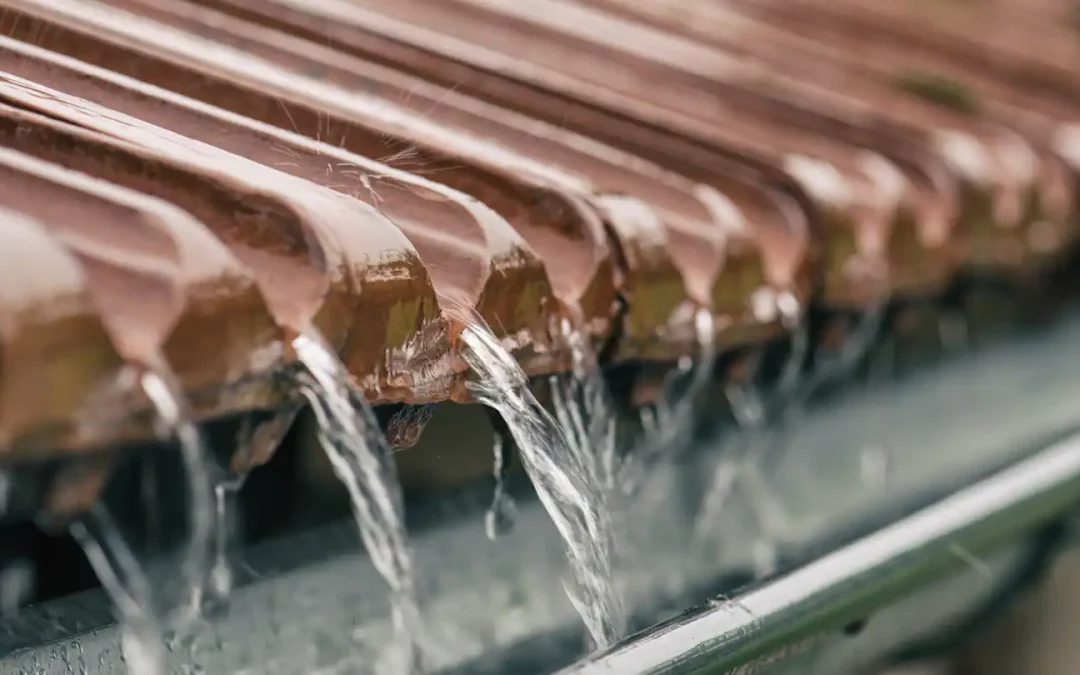Understanding the Basics: How Gutters Work
Before diving into the reasons for overflowing gutters, it’s essential to understand how gutters work.
Gutters are components of a building’s water discharge system, designed to collect and divert rainwater away from the structure.
They are typically installed along the roof edges, directing water towards downspouts, which carry it to the ground level, safely away from the building’s foundation.
The Science Behind Rainfall and Overflowing Gutters
Rainfall intensity can greatly impact how well your gutters function. During light or moderate rain, your gutters should handle the water flow effectively.
However, heavy rain can present a significant challenge.
A downpour can result in a sudden surge of water that gutters may not be able to cope with, causing an overflow.
The volume of water can simply exceed the gutter’s capacity, especially if there are obstructions or issues with the gutter design.
Common Causes of Gutter Overflow During Heavy Rain
Overflowing gutters in heavy rain are often symptomatic of underlying problems. Here are the most common causes:
- Clogs: This is the most frequent issue. Debris such as leaves, twigs, and dirt can accumulate and block gutters and downspouts, restricting water flow.
- Insufficient Capacity: If gutters are too small to handle the amount of rain falling on the roof, they will inevitably overflow. This is often an issue in areas prone to heavy rainfall.
- Poor Design or Installation: Gutters should have a slight slope towards the downspouts for effective water flow. If not installed correctly, water can pool and overflow.
- Insufficient Maintenance: Like any part of a building, gutters require regular maintenance. Without it, problems can escalate, leading to overflow during heavy rain.
Consequences of Overflowing Gutters: Risks and Damages
The repercussions of gutter overflow are not to be underestimated.
Overflow can lead to water intrusion, causing significant damage to your walls, roof, foundation, and landscape.
Mold growth, a common aftermath of water intrusion, poses health risks.
Moreover, stagnant water can serve as a breeding ground for mosquitoes.
Effective Solutions to Prevent Gutter Overflow in Heavy Rain
Preventing gutter overflow largely involves regular maintenance and careful design:
- Regular Cleaning: Ensure your gutters and downspouts are clear of debris.
- Proper Installation and Design: Consider professional installation to ensure gutters are correctly sloped and adequately sized for your roof area and local rainfall intensity.
- Gutter Guards: These can help reduce the accumulation of debris in your gutters.
- Routine Inspections: Regular check-ups, especially before the rainy season, can help identify and fix issues before they cause significant damage.
Overflowing gutters during heavy rain can be more than just an annoyance; they can result in severe damage to your home.
Understanding why this happens and implementing effective preventative measures can save you from costly repairs in the future. if you need any of your gutters repaired, then contacting your local gutter repair company will be the best and fastest option.


